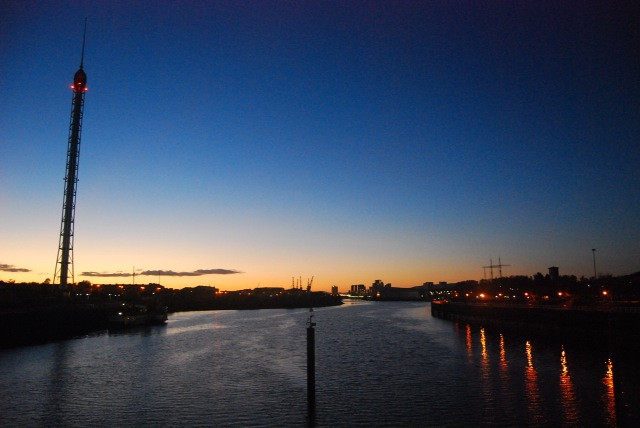A resource for geography teachers, which will grow to contain a range of strategies to support them in all aspects of their work.
Wednesday, 22 December 2010
FrozenUK
Follow @FrozenUK for the cold weather geographical digest... or add #FrozenUK to your tweets and I'll pick it up and add it when I get the chance...
There is more snow falling as I type this...
Thursday, 16 December 2010
Points of View
You can now JOIN THE CONVERSATION..
As a GA member, when you log in you will be able to add a comment to any page of the website and, if you have purchased an item from the GA shop, you can also add a STAR RATING and a comment. This will let us develop more of a community feel to the website (non GA members will have to wait for their comment to be moderated) and if you are logged in you can add an image to your profile.
I have added a comment to the page which contains my WINTER TEACHING IDEAS, so feel free to take a look at that and add your own thoughts...
The snow is falling again outside the window as I press PUBLISH POST...
Sunday, 5 December 2010
New IB Geography course from the GA...
IB Geography - Reflecting on the 'new' syllabus
This CPD course will help Post-16 teachers, both new and experienced, reflect upon the demands of the IB geography diploma programme.
The 'new' 2009–2017 syllabus will have completed its first cycle in the summer of 2011 and this one-day course will provide an excellent opportunity for teachers to reflect upon the first cycle and make plans for the next.
London - Friday 24 June 2011
Further details and online booking are available on the GA website
The course tutor is Richard Allaway, creator of the rather wonderful GEOGRAPHY ALL THE WAY website.
Google Earth 6
It includes millions of 3D trees, and other improvements, including better integration with Google Street View
Go to the AMAZON for example, and you can wander the jungle and explore some of the tree species in the rainforest... I'm sure we can come up with some ideas for using this in the geography classroom :)
And don't forget my Innovative Geography Teaching funded project from back in 2005...
Thursday, 2 December 2010
David Lambert at the SSAT Conference #nc10
The slides that David used (you might want to listen to the presentation while watching the slides, or put them side by side on the screen...) are available via SLIDESHARE... and have been embedded below...
November 2010 SSAT Presentation
If you're snowbound today & your school is closed take a look...
Think of it as a little impromptu CPD
Friday, 19 November 2010
GA Conference Programme 2011
This is the main event for geography teachers wanting to update their subject knowledge, and meet with colleagues...
Come and see Hans Rosling: the creator of Gapminder.
Monday, 25 October 2010
SAGT Conference 2010
The weather was mixed, and the journey up was not without its delays either, but the actual day of the event was bright and cold, and managed to get some nice pictures taken in the evening, as above - looking along the Clyde from the Crowne Plaza hotel and SECC.
My presentation was part of the overall conference programme, which included a number of familiar names from previous events, and from English geography circles...
I arrived the night before the conference, and over to Hutcheson's Grammar school via a jammed M8 to set up the GA stand. The school was a nice mix of ancient and modern, with a wonderful church for the keynotes. Our hotel was next to the SECC, and the Finnieston Crane and made my way back there eventually after various diversions to meet with Dan and Noel, and out for a meal with Val Vannet at the City Cafe, overlooking the Clyde and the Clyde Arc (or Squinty bridge as it is called - one for LOCATION LINGO there....)
The following day, over to the venue early and set up. Met lots of delegates for chat, Ken and Darren from the Ordnance Survey, who gave me lots of jute bags, and Paul from Mapseeker. John Hopkin: GA president for 2010-11 came up to do the fraternal greetings after the first inspiring keynote from Al Humphreys.
David Rogers, Noel Jenkins and Dan Raven Ellison were among the other seminar presenters, along with Ollie Bray, whose Hodder Gibson book also won an award. Good to see a few of my Twitter followers popping up as well, and gained a few more over the weekend.
Writing the earth
Handouts included a copy of "Chop one red onion" from the PGCE Survival Guide, and a range of other resources and maps.
I also read one of Rob Hindle's poems from "Neurosurgery in Iraq".
SAGT Delegate Notes
After the 2 full seminars, it was a final keynote from Alun Morgan.
Earlier, I had collected two awards for the GA's publications: COMMENDED awards to GCSE toolkit and TOP SPEC series...
Out into the sun for the evening, and over to the Granary with Kenny and Akiko for a pint and chat with Ollie.
Another good SAGT experience.
In the evening, did some photography with Noel along the river, and then food, after a 'mystery tour' of Govan....
The following morning it was a simple matter of scraping ice off the car, and a 350 mile drive south...
David Rogers has posted his seminar presentation on his blog already, along with a write--up... Will be blogging about his present later...
All pics by Alan Parkinson, and available on Flickr.
Sunday, 10 October 2010
Institute of Education Seminar
Here are the details.
I shall be 'recording' as much of the events as I can to help with my nascent MA studies, and own professional development....
If there is phone reception, I shall be tweeting from the event too... some amazing speakers...
Venue: Room 836, Institute of Education, University of London, 20 Bedford Way, London WC1 H 0AL
Convenors: David Lambert (Geographical Association / Institute of Education) and John Morgan (Institute of Education)
- Introductions [10 mins]
- David Lambert: Do we have to say what geography is? To whom? [10 mins]
- Professor Alastair Bonnett: Geography in public. Geography as one of humanity’s big projects? [20 mins]
- Dr Jessica Pykett: The public in geography. Can the public(s) be identified? (20 mins]
- Discussion: [10 mins]
- Geography and young people – does geography matter to me? With school students from Charters School, with teacher Dan Cowling;
- School geography – stuff to be delivered or a resource to be used? With the Geographical Association’s ‘community geographer’ Bob Digby;
- Communicating geography in policy environments – what works? Royal Geographical Society (with IBG);
- Communicating geography within education. With Jenny Hill (University of the West of England), newly appointed to the Editorial Collective of Geography.
- Communicating geographical perspectives in the public media? With Joe Smith (Open University),Interdependence Day and co-author of Do Good Lives have to Cost the Earth?
- Imagining a post-progress – a ‘real post-modern’ – geography. With John Morgan, author of Teaching secondary geography as if the planet matters, and member of the Geography Editorial Collective
- specific ways in which geography is a ‘powerful knowledge’
- particular ‘publics’ who need access to geography as a powerful knowledge (and why)
Monday, 4 October 2010
Lobby your MP
The reasons for this are fairly clear, when one considers that there are many schools now which don't offer Geography at GCSE level, and there are also pressures on curriculum time lower down the school. At Primary, student experiences of geography are patchy, although there are many excellent schools, a growing number of which hold the Primary Geography Quality Mark as a way of celebrating their commitment.
Lobbying your MP sounds like it might involve a lot of hard work, but it actually takes just a few minutes.
Visit the GA's website page on LOBBYING YOUR MP.
Print off the letter that has been written as a template for you to use.
You might want to add your address, and also edit it to add your own thoughts.
You can also print out and include a copy of the latest document, written by John Hopkin and David Lambert.
Put it in an envelope - the address is on the website...
Then, importantly, please TELL US WHICH MP YOU HAVE CONTACTED so that we can keep a track of who has been suitable "lobbied"...
Thanks in advance for your support with this.
And by the way, it works...
I received a reply from my MP...
New Teaching Geography now available for download...
It features a range of inspirational articles on the theme of place by Mark Jones, Eleanor Rawling, Becky Kitchen, Margaret Roberts and others...
Articles range from a teacher visit to Greenland, to the urban re-branding and renaissance of Scarborough...
To add a subscription to your GA membership, or to join (and gain access to the last five years of journals in electronic format) click the JOIN THE GA link.
Saturday, 2 October 2010
Controlled Assessment Videos by Dave Holmes
The first is shot in London and provides some simple ideas for ethnographic fieldwork data collection.... "people watching"...
The second is particularly helpful.
It is a short video featuring Nick Blunsum: the Head of Geography at Kingsmead Community School
What's great is that Nick talks about the impact of going through the process of gaining the Geographical Association's Secondary Geography Quality Mark.
He talks about "evaluating what was good and developing areas that needed improvement" and also "giving back some of the control to students to stop the lessons being too teacher led..." - some good advice on controlled assessment too....
Thanks for sharing these Dave, and to @GeogAdviser for the tip off on Twitter....
Thursday, 16 September 2010
Microsoft Innovative Education Forum
Following content is borrowed from David Rogers... (I could type it all out myself, but....)
The 7th Microsoft Innovative Education Forum is a one-day conference, free of charge to all teachers and educators who wish to attend and will look to address the theme of ‘Connecting Learners, Connecting Teachers.’

This forum aims to connect Teachers with Teachers, Educators with Educators. Allowing you to share expertise and learn from each other. Giving insights into how you can connect your students with technology and connect them with their learning.
This year the Forum is being held at the Hilton Deansgate Hotel in Manchester on the 30th Nov.

We have a packed agenda with Keynote speakers at the event will be the world renowned Prof. Sugata Mitra famous for his ‘Hole in the wall’ project and Michael Furdyk CEO of the young person’s online community , Taking IT Global.
In addition, Delegates will be able to choose from a range of practical workshops covering areas such as using free software and Web 2.0 technology, games based learning and managing innovation in schools.

Workshop 1- TakingITGlobal - Mandeep Atwal, TIGed UK
Workshop 2- Outdoor learning & technology - David Rogers, The Geography Collective
Workshop 3- From the cloud to the classroom, making innovation stick! - Guy Shearer, Head Teacher, Lodge Park Technology College
Workshop 4- Creative use of technology in the classroom - Dan Roberts, saltash.net community school
Workshop 5- Office 2010 in the Classroom – Stuart Ball – Microsoft Partners in Learning
Workshop 6- Kodu Games based learning - Nicki Maddam, Hartsdown Technology College, Margate
Find out more details about each workshop here>>
What’s on your mind?
For the first time we are holding an Innovative Teacher Meet, 29 Nov. at 7:30pm
Join us for drinks, canapés and a series of TeachMeet style pitches from leading teachers at Hilton’s vibrant Cloud 23 bar, providing 360-degree views of Manchester.
Share with like-minded teachers in a series of 3-minute open pitches.
Also, find out who are Microsoft’s 2010 Award-Winning Innovative Educators. The awards will be presented at this event, to Teachers who have submitted projects that illustrate the innovative use of technology to enhance teaching and learning. Not only will they receive award recognition, but have the chance to be invited to The European Education Forum being held in Moscow next year. These project will be on display at the event.
Don’t miss out, register todayhttp://uk.partnersinlearningnetwork.com

I shall be there at the Teachmeet and also the main event...
See you there...
Sunday, 12 September 2010
Cape Farewell: a voyage around Svalbard
Previous voyages involved Anthony Gormley, and Rachel Whiteread, who was inspired to fill the turbine hall at Tate Modern with white cubes.
When teaching the now sadly ex-Pilot GCSE Geography course a few years back, I used the Cape Farewell pack that the Geographical Association produced.
The blog posts that relate to my studies of this EXTREME ENVIRONMENT are available by following THIS LINK to the blog: you'll see student work and a range of other resources which I hope you might still find useful...
The latest Cape Farewell expedition is going to follow the route shown on the map above, and it has JUST SET OFF... you can follow if for the next few weeks by visiting the CAPE FAREWELL WEBSITE, or following CAPE FAREWELL on TWITTER.
Monday, 6 September 2010
NQT Survival Kit now 'live' on the GA website
I hope the first day is going well. My daughter started secondary school today, and my son a new primary school, so my educational adventure continues over 40 years since I first passed through the doors of my own first school: Northfield Lane Infants School, Wickersley.
For those starting school as a teacher for the first time, the GA has produced a new resource: an NQT SURVIVAL KIT.
If you know an NQT, please direct them to this resource: a lot of it is not 100% geography specific: it's just solid advice...
This is not a 'completed resource'. We would really appreciate any updates for the resource - send us your experiences, thoughts, ideas and tips for fellow colleagues who are starting out on their professional journey.
Sunday, 5 September 2010
David Lambert in the TES
Wednesday, 25 August 2010
Google Earth Weather Forecasting


Saturday, 21 August 2010
Researchers in Residence
The world cup and 2012 Olympics were used by a researcher in residence to link the geography curriculum to real-life situations, and enrich teaching even further at Cardiff High School. The project was part of a UK-wide scheme that is looking for geography teachers to host enthusiastic researcher scientists.
The scheme, Researchers in Residence (RinR), funded by RCUK and the Wellcome Trust places geography researchers in schools to enrich 11-19 year old classes. ….
With anticipation high prior to the 2010 World Cup, Lesley Williams, Geography teacher at Cardiff High, was inspired to host a researcher who could apply their technical expertise to a sport themed study, sourced through the Researcher in Residence scheme.
“I wanted to improve links with Cardiff University and to tap into a nearby pool of experts who could add so much to the curriculum and our students’ learning experience”, Lesley explains.
“One specific goal was to highlight to the students the real world application of elements of their geography study, through the sustainability in sporting events project for example.”
The placement…
RinR regional coordinators matched Lesley with Dr Andrea Collins, a social science researcher from BRASS[1], whose research involves assessing the environmental impacts of sport and major events. Working in consultation with Lesley, Andrea developed a range of engagement activities that would enable pupils to think creatively about the negative impacts big events can have on the environment and how they could be reduced. Andrea explains, “my placement was spent with Year 9 pupils and teaching staff from the Geography Department.
The Stadium is one of London 2012’s venues for the Olympic Games.
My placement involved; contributions to classroom sessions on ‘London 2012 Olympics and Sustainability’ and ‘Greening Events’. Judging a poster competition on ‘Making Big Events more Sustainable’, and organising an educational tour of Cardiff’s Millennium Stadium.
The year-long poster competition involved students creating a promotional poster highlighting the issue of sustainability in sporting events and recommending preventative measures that could be taken to reduce environmental damage. Winners of the poster competition went on a bespoke tour of Cardiff’s Millenium Stadium, that included a talk from the stadium’s environmental manager on the different measures taken at the grounds to make games more sustainable.
Many of the in-class activities Andrea developed encouraged students to use their creativity, problem-solving and reasoning skills to find solutions and fully grasp the subject matter of the project.
Groups of students worked together to create mock ‘bids’ for the 2012 Olympic games and presented their ideas to the rest of the class. They were also tasked with evaluating the 2004 FA Cup in Cardiff, an exercise that involved analysing past data on visitor numbers, modes of transport and food consumption relating to the event. Following an initial analysis, students then recommended measures event organisers could have put in place to limit the environmental impact of the event.
Suggestions included care sharing, advance travel planning and the use of ‘combi’ tickets, (tickets that are redeemable on public transport as well as grant access to the stadium).
Interactive activities like a poster competition and visit to Cardiff’s Millenium Stadium provided a context and stimulus that students could use to apply the concepts they were learning about in class. Such activities required students to appreciate the many factors incumbent in organising large scale events and the precautions that must be taken in order to mitigate their environmental impact.
Conclusion
On reflection, all parties involved in the placement have noted specific benefits gained as a result of the experience. Andrea notes, “It [the placement] forced me to think hard about the best way to communicate my research to that particular target group. I developed a range of teaching activities to engage pupils at an individual and group level, and I plan to use these in future public engagement activities.”
According to Lesley, both the students and staff at Cardiff High benefited markedly from the experience. “The children have certainly benefited. The prize which Andrea arranged was wonderful and the powerpoint presentations based on her research were most informative. The project on sustainability in sporting events was educationally valid and relevant given that when we started it in school, the World Cup was just beginning - allowing students to explore the impacts of such big events.
This fed nicely into the London 2012 Olympics and given our proximity to one of the Olympic venues, the Millennium Stadium, the work took on even greater significance. It was definitely worthwhile and demonstrated the relevance of geography in our everyday lives thus also promoting the subject.
It was a valuable and enjoyable project which has enhanced the experience of our students and was excellent for my own professional development.
It has been a superb experience and I would certainly repeat it.
Lesley’s advice to prospective teachers/schools interested in hosting a researcher…
“Teachers need to bear in mind that the subject specialisms of researchers should enhance the taught curriculum at key stage 3 or the examinations syllabus at GCSE , AS or A2. / The teacher needs to check that the work is relevant at the outset, therefore maximising the potential impact of collaboration for all stakeholders.
To apply to Researchers in Residence or for more information on hosting a researcher, call 0845 365 7470 or visit www.researchersinresidence.ac.uk
Thursday, 19 August 2010
Hans Rosling at GA Conference 2011
Monday, 16 August 2010
New GA Merchandise
 You can now show your appreciation of all things geographical by shopping at the new
You can now show your appreciation of all things geographical by shopping at the new#pgcetips (not PG tips)


Sunday, 25 July 2010
The Invention of Geography
The Invention of Geography
Let us know what you think of Ben's piece...
Friday, 16 July 2010
Google Earth 4 Degrees














